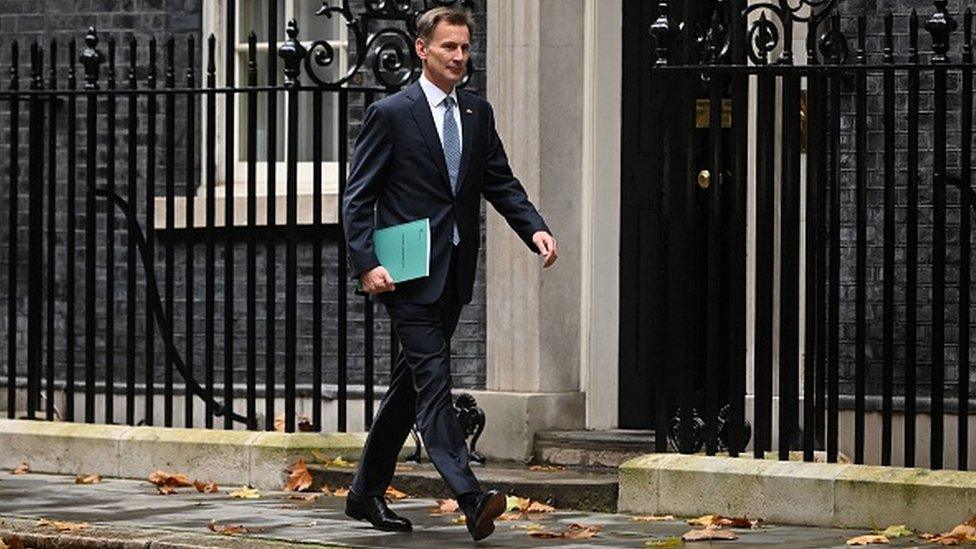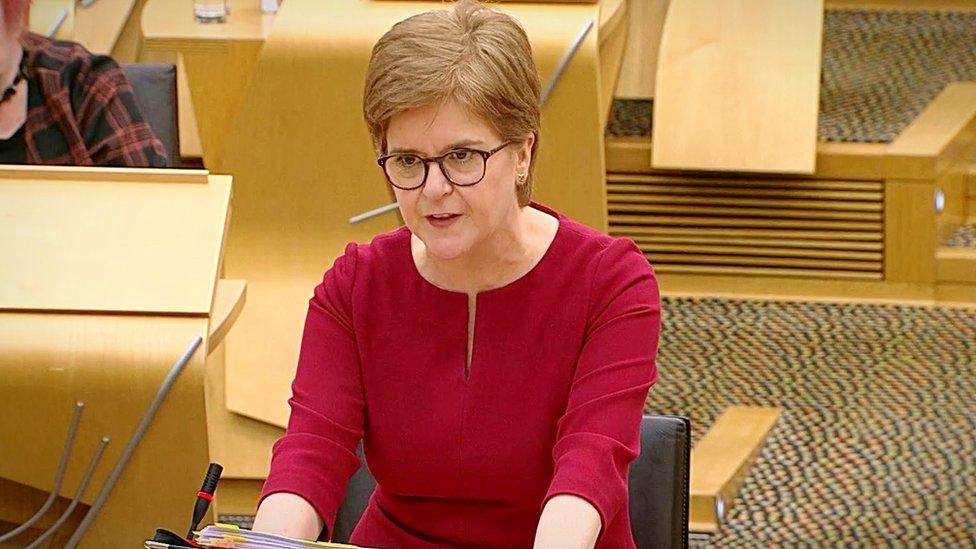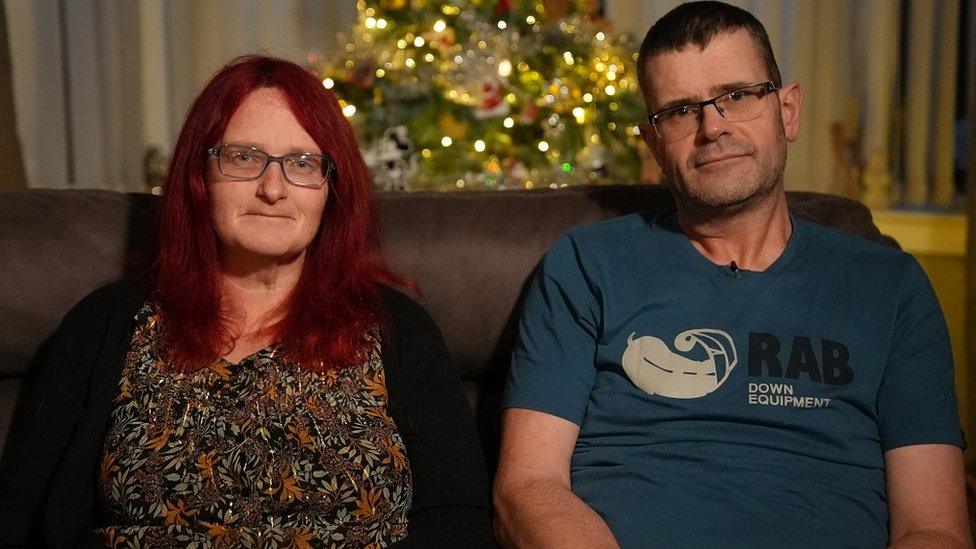Autumn Statement: Jeremy Hunt says finance plans worth £1.5bn to Scotland
- Published

Jeremy Hunt described his autumn statement as a "plan for stability"
Financial plans set out in the autumn statement are worth £1.5bn to Scotland, the chancellor has said.
Jeremy Hunt said the Scottish government would receive the funds over the next two years.
However First Minister Nicola Sturgeon said Scotland essentially had a flat budget because its value had shrunk by £1.7bn as a result of inflation.
It comes as the Office for Budget Responsibility (OBR) predicts the UK economy will fall by 1.4% next year.
The independent forecaster said higher energy prices driven by the war in Ukraine are largely to blame for the downturn. It believes the country will not start growing again until 2024.
The chancellor said his plan was designed to fight against inflation in the face of "unprecedented global pressures" brought about by the pandemic and the Ukraine crisis.
He announced a £55bn "plan for stability", half of which would come from tax rises and the rest from deep spending cuts.
Mr Hunt said: "Scottish families will receive billions of pounds of UK government support, such as inflation-matching increases in benefits and the state pension."
During a combative FMQs, Nicola Sturgeon accused the UK government of repeating the mistakes of the past by bringing in austerity.

Nicola Sturgeon said the UK government had brought back austerity
"These plans are likely to worsen the extreme pressures already being faced as a result of inflation and rising interest rates," she said.
"We have called for an alternative approach that avoids prolonging a recession that the Bank of England forecasts. I hope that alternative approach is listened to.
"Of course the UK is almost unique amongst wealthier countries in terms of reintroducing austerity.
"There is an alternative to Tory mismanagement of our economy, it's self management of our economy, otherwise known as independence."
'Significant difficulties'
Other key announcements affecting people in Scotland included state pensions and benefits rising in line with inflation as well as a continued price cap on energy bills - although this cap will be raised.
Mr Hunt told the Commons that the chief secretary of the Treasury had met with Scotland's deputy first minister John Swinney, adding "we have good co-operation".
Mr Swinney said he welcomed certain measures but said there were "significant difficulties" underlying the budget.
He said: "The situation in the UK has been made discernibly worse and more challenging by the decisions of the UK government - first, in a prolonged period of austerity that they kicked off in 2010 which we are now returning to.
"Also because of that absolutely reckless mini budget just a few weeks ago when the Conservatives thought the right thing to do was dramatically reduce taxation - and we now find them dramatically increasing taxation just a few weeks later."

John Swinney said the Scottish government would carefully consider the announcements
Mr Swinney said the Scottish government would carefully consider the changes and set out its response in the December budget.
Liz Smith, Scottish Conservative finance spokesperson, said Mr Hunt had protected vulnerable people by uprating benefits in line with inflation, maintaining the pensions triple lock and increasing the national living wage.
She also welcomed the promise of a feasibility study on upgrading the A75 - on which she said the SNP had "dragged their feet".
Ms Smith said: "The Chancellor has delivered what he promised - an honest, fully-costed and compassionate package to meet the tough economic challenges the country faces in the wake of the global cost-of-living crisis."
Scottish Labour leader Anas Sarwar said the budget would leave the country lurching from crisis to crisis with low standards and low growth.
Scottish Liberal Democrat leader Alex Cole-Hamilton accused the Conservatives of incompetence which led to tax rises and spending cuts.
And the Scottish Greens criticised the chancellor's confirmation of plans for the Sizewell C nuclear plant in the south east of England - despite denying the plans were under review earlier this month.


John Swinney will want to consider the UK's tax and spending plans as he prepares to announce the Scottish budget for next year at Holyrood on 15 December.
He now knows the funding coming his way from the UK Treasury will rise by around £1.5bn over the next couple of years but he does not expect that to restore the spending power lost to inflation.
That probably means further cuts to some areas of devolved public spending, although it is also open to Mr Swinney to try and raise more revenue from income tax.
I understand the Scottish government has already modelled lowering the threshold for the top rate of tax, which would make higher earners pay more.
As the UK government's already doing that in England, I would be surprised if there was not similar action in Scotland.
Mr Swinney's immediate budget challenge is to find more money for better NHS and education pay deals to avert strike action.
The Chancellor did not offer any new money for that today, which means the Scottish government will have to consider a further raid on money it has already allocated for other purposes in this financial year.
- Published17 November 2022

- Published15 December 2022

- Published17 November 2022
